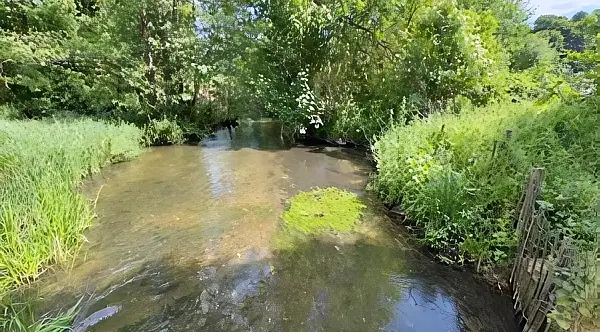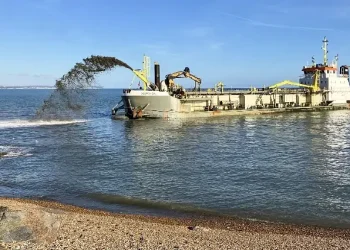The UK government has announced a plan to halve sewage pollution by 2030, involving a £104 billion investment and stricter regulations.
This initiative aims to enhance water quality, protect public health, and support environmental sustainability.
Details of the UK’s New Sewage Pollution Reduction Plan
The UK government has committed to a significant environmental initiative aimed at reducing sewage pollution by 50% by the year 2030. This ambitious goal will be supported by a massive £104 billion investment intended to overhaul the nation’s water infrastructure.
Key components of the plan include the reduction of storm overflows and phosphorus levels, a ban on plastic wet wipes, and the implementation of sustainable drainage systems, which are essential for mitigating pollution.
Financial Strategies and Community Benefits
Over £100 million collected from pollution fines will be reinvested into local environmental clean-up projects. This funding approach not only penalizes polluters but also helps to repair the damage done, directly benefiting affected communities.
Additionally, the plan mandates the installation of overflow monitors, with 50% coverage by 2030 and full coverage by 2035, ensuring better compliance and monitoring.
Public and Environmental Health Implications
The reduction in sewage pollution is expected to lead to cleaner rivers, lakes, and coastal waters, which is crucial for the health and safety of the public. Families will benefit from safer swimming zones and reduced risks associated with waterborne pollutants.
Economically, cleaner waters are likely to boost tourism and increase property values in nearby areas, providing a financial uplift to local economies.
Historical Context and Policy Evolution
This new initiative builds on previous environmental efforts, such as the 2022 sewage discharge reduction targets and the 2024 Storm Overflow Reduction Plan. These earlier measures laid the groundwork for the current ambitious targets.
The plan also aligns with Water UK’s Net Zero 2030 commitment, demonstrating a continued industry move towards more sustainable practices.
Insightful Data on UK’s Water Quality Initiatives
| Category | Detail |
|---|---|
| Investment Amount | £104 billion |
| Overflow Monitors by 2035 | 100% coverage |
| Plastic Wet Wipes | Ban to reduce microplastic contamination |
| Storm Overflows Reduction | 2024 Plan exceeds previous goals |
Reactions from Industry Leaders and Critics
Industry leaders, represented by Water UK, have endorsed the government’s plan, particularly praising the ambitious targets set by the Storm Overflow Reduction Plan. This support highlights a strong alignment between government policies and industry goals.
However, critics have expressed concerns about the feasibility of such ambitious targets, citing long timelines and previous delays in infrastructure projects. They argue for more immediate actions to address urgent pollution issues.
Linking Pollution Control to Climate Adaptation
The government’s anti-pollution efforts are also seen as part of broader climate adaptation strategies. For instance, the implementation of sustainable urban drainage systems (SuDS) is expected to reduce urban flood risks, aligning with climate resilience objectives.
Moreover, these efforts support the burgeoning trend of open-water swimming and could help in the recovery of the UK’s coastal tourism economy post-pandemic.
Additional Reading
Sources: UK Government Press Release, RWB Group, Water UK, Department for Environment, Food & Rural Affairs and The Rt Hon Steve Reed OBE MP.
Prepared by Ivan Alexander Golden, Founder of THX News™, an independent news organization delivering timely insights from global official sources. Combines AI-analyzed research with human-edited accuracy and context.









